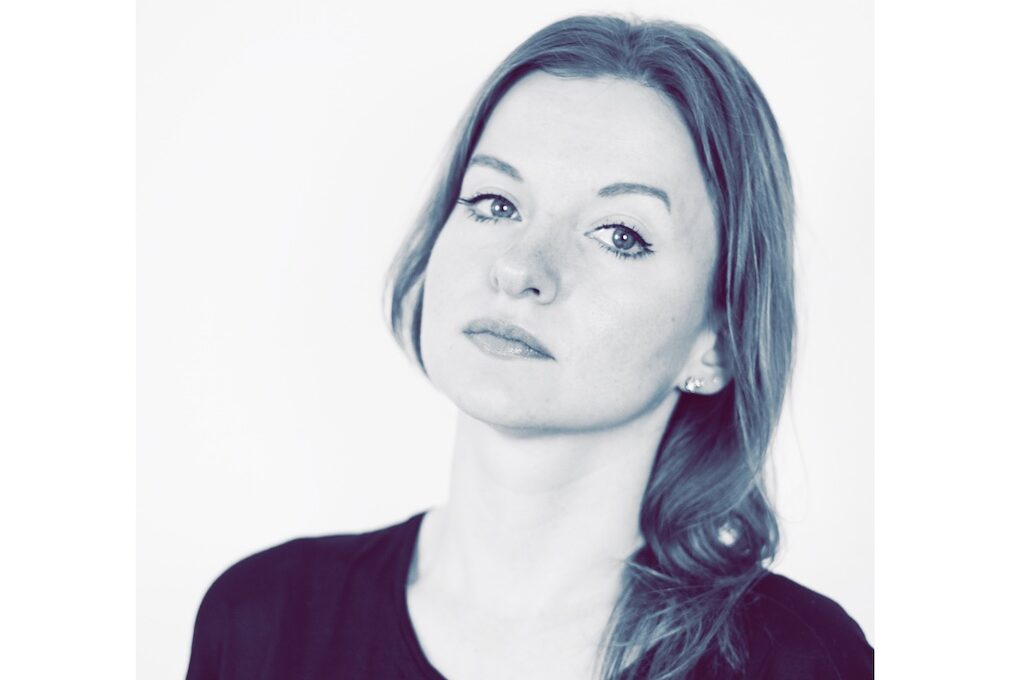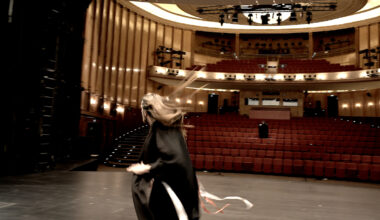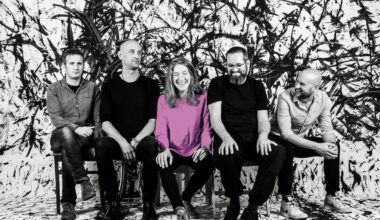Elena Sinanina is a curator and project manager. She lives and works in Berlin.
She was born and raised in Leningrad/ Saint Petersburg, Russia. 1992 emigration to Germany. After studying Theater Studies, German Language and Literature and Psychology, engagements at the Deutsches Theater and the Volksbühne Berlin, where she worked with directors such as Jürgen Gosch, Dimiter Gotscheff, Frank Castorf, Silvia Rieger and with the Youth Theatre P14. Dramaturgical work and literary translations. In addition, activities in the field of exhibition production for various institutions and companies. Conception and realization of interdisciplinary projects between visual and performative art.
Development of ritual-based formats and experimental work with hypnosis. 2018 Complete training as a hypnotherapist (clinical hypnosis after Milton H. Erickson). Since 2016 engagement at the Maxim Gorki Theater Berlin as an Artistic Assistant to the Artistic Director Shermin Langhoff and there responsible in the team for the interdisciplinary format “Berliner Herbstsalon”.
Do not miss her interdisciplinary project Ara with Attila Csihar at Volksbühne Digital, this Friday, 21.5.2021.
FACTS
1. The past speaks to us through objects, artifacts, stories. In theater and ritual, the simultaneity of past, present, future can be experienced.
2. It is possible to get in contact with artifacts through artistic work.
3. It is possible to transcend the separation between subject and object, through artistic work.
QUESTIONS
1. What was the inspiration for ARA?
The inspiration for ARA was the Pergamon Altar and the study of its history and distinctiveness. ARA is Latin and means altar. This is also one of the names of the Pergamon Altar, which became determinant for our project in terms of content, epistemologically. But an altar in general is also at the center of every ritual, as a place of communication and mediation, as a threshold. Threshold situations also characterize artistic work in general, as I understand it.
2. When did you start working on the project?
My interest in artistic work has to do with a special perception of the world, or with the phenomenal “so-being” of the world. To approach what is real in an artistic project and together with others, together with the team. This means that in the exploration and approach to things, which have a sacred value in particular, one proceeds less fact-based or rationally, but phenomenologically, with the methods of perception that are not limited to the use of the mind or consciousness alone.
3. What are five crucial constituent parts of ARA?
As essential components of the project, that make it what it is, I would name the history of ideas of the Altar, its conceptualization, its relation to our present in Berlin and the influence of the present on the project, that is, the necessity of the content adjustments, Attila Csihar’s influence as a protagonist and artist, and the contribution of the executing team.
4. What do you associate with Berlin?
Heterogeneity of artistic approaches and lifestyles. Dissonances. Freedom.
5. What’s your favourite place in your town?
Places where artistic synergies and contact with dissenters are possible.
6. If there was no music in the world, what would you do instead?
Continue working.
7. What was the last record/music you bought?
I have recently been working mainly on the history of antiquity and theories of perception. How does perception happen? How can one describe the special kind of communication with objects? How does meaning emerge in dialogue with seemingly inanimate things? Dialogues are possible not only with people, but also with things, objects, artifacts, but the contexts and histories of origin surrounding them also carry weight.
8. Who would you most like to collaborate with?
I would like to deepen the existing artistic working relationships and pursue the content approaches we have developed together to translate rituality into art in the context of history.
9. What was your best gig (as performer or spectator)?
One of the impressive concerts of the last years was the concert of Sunn O))) 2019 in Berlin with Attila Csihar as vocalist. I was impressed by his performance, his unique stage presence and the way he uses his voice in the context of music and sound. A world experience through voice. A universe of overlapping, transcending voices. The multiformity of the voice and the voice as world experience, this is how we came together to the idea to work in ARA only with Attila’s voice alone and to bring it to unfold. The multiplicity of voices, the concept of pure voice, which he also pursues in his solo project Void ov Voices.
10. How important is technology to your creative process?
I think that technology can help to organize and enable communication and participation on a global scale, even if many people are still excluded from this because resources and thus access to technology are not equally distributed everywhere.
11. Do you have siblings and how do they feel about your career/art?
I consider my ideas and concepts as “siblings”, as a kind of the “unknown” in the own self, which realizes itself artistically in the world. This is actually independent of me and my person, or of my consciousness. I think we will have to deal with each other for a while.


